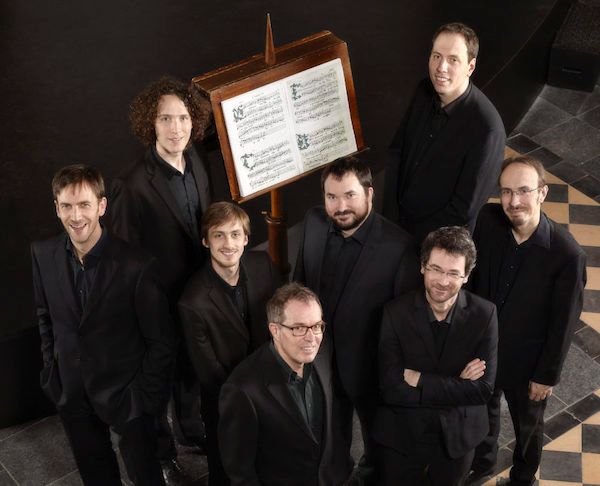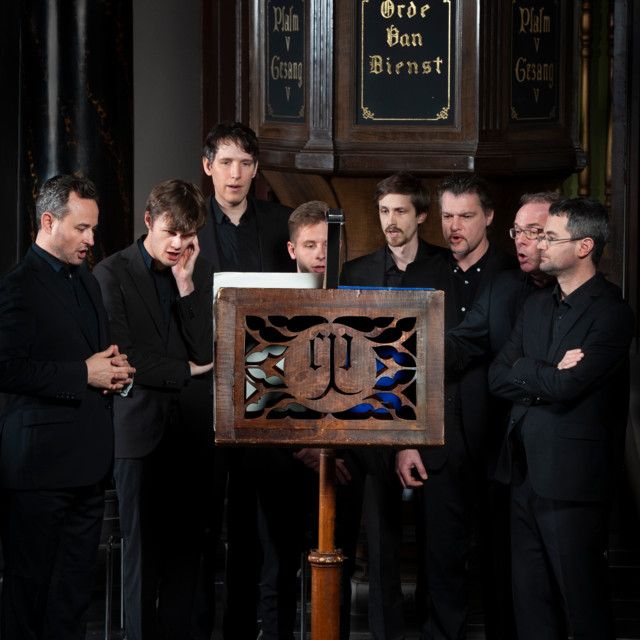Baroque Itinéraire II: Ezekiel's Eagle
Let's take a second to appreciate Mouton's own achievements ... If the Missa Tua est potentia is anything to go by, there are revelations aplenty ahead

Ezekiel’s Eagle: Mouton & Gregorian Chant. Cappella Pratensis / Stratton Bull (dir). 29.07/2022, 12:00 (CC)
Jean Mouton Missa, Tua es potentia. Motet, Tua es potentia, interspersed with Gregorian Chant
Cappella Pratensis has recorded this programme to fine effect. They are also in the process of recording nine Choir Books from ‘s-Hertogenbosch: polyphony complemented by a variety of plainchant (often reflecting local practices). The Den Bosch Choirbooks will take the group from 2020 to 2024 and result in five discs: learn more here. Their disc, Ezekiel's Eagle, is the second volume.
Here we exit the Baroque and move to the Renaissance, and Jean Mouton (c. 1459 – 1522). Details of Mouton’s life are understandably scant, but we do know he was in charge of choirboys in Amiens and later became the principal composer of the French court. He wrote a total of 15 masses, and if they are all as fine as this one, that is cause indeed for celebration. The music is masterly – this is a true masterpiece, written with devotion and musical mastery. Some of the harmonies are remarkable, harmonic false relations that sound modern, even to our ears today. They require a choir of skill to negotiate them, and Capella Pratensis, clearly not just immersed but positively soaked in this music, are themselves masters of their craft. The blossomoing of the Gregorian chant Introit (‘Prolexisti me, Deus,’) prepared the ground for a multiplicity of moments of revelation:
The ensemble’s way with the melismatic writing in the Gregorian chant was magnificent, perfectly together, timeless, the contours of the music lovingly revealed. One can hear this for example in the Alleluia Dominus in Synai. Here‘s their recording:
The Cappella Pratensis boasts strong counter-tenors in the form of Stratton Bull (also the director) and Andrew Hallock. The way they sing, almost huddled together around a single music stand that holds a facsimile of the original music, and change positions at strategic junctures, adds an extra layer of theatre to the experience.

The Missa Tua es potentia holds moments of the greatest beauty – the ‘Et expecto’ from the Credo, for example:
And yet parts of the Sanctus almost dance (this is a Sanctus with an Elevation motet,‘O salutaris hostia’ :
Finishing with the plainchant Communio Ego Sum Vitis, and its restrained final ‘Alleluia,’ was unforgettable.
Almost finishing, that should have read, There was an encore, more Mouton: the motet Da Pacem Domine. Perhaps we could have guessed (it is the last track of their disc). But so what if we did? This is heavenly, gloriously complex, its lines effortlessly negotiated by the supreme talent of the Cappella Pratensis. Here they are:
Historically, one can claim that Mouton's influence was most clearly found in the music of his better-known pupil, Adrian Willaert (c. 1490-1562), one of the founders of the Venetian School. Before we get there, though, let's take a second to appreciate Mouton's own achievements. If the Missa Tua est potentia is anything to go by, there are revelations aplenty ahead.
So, there are two volumes out so far from the series, both Amazon-ed and Spotify-ed below!:
Mouton Ezekiel's EagleGaude Virgo!